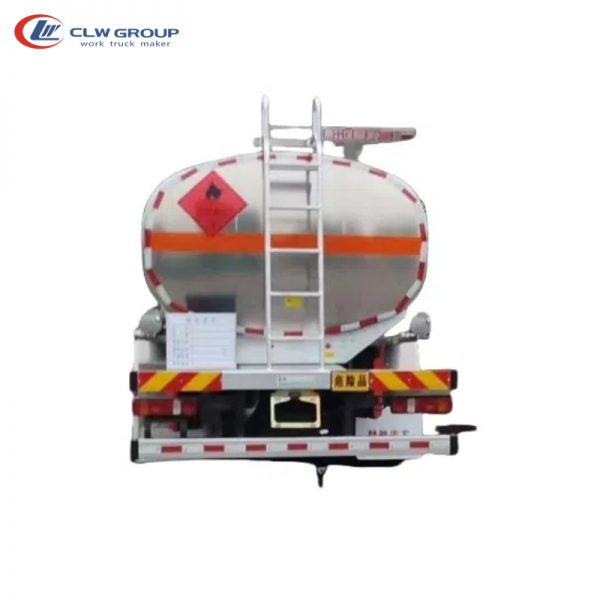Introduction
Work truck trailers play a crucial role in various industries, from construction to logistics. These trailers are essential for transporting goods, equipment, and materials efficiently. With the advancement of technology, work truck trailers are now equipped with various sensors and devices that collect valuable data. This data can provide insights into the performance, maintenance needs, and safety of the trailers. In box truck , we will explore the significance of work truck trailer data analytics and how it can enhance efficiency and safety in different industries.
Importance of Work Truck Trailer Data Analytics
Work truck trailer data analytics involves collecting, analyzing, and interpreting data generated by sensors and devices installed on the trailers. This data can include information about the trailer's location, speed, fuel consumption, engine performance, tire pressure, temperature, and much more. By leveraging this data, companies can gain valuable insights that can help them make informed decisions and optimize their operations.
One of the key benefits of work truck trailer data analytics is improved efficiency. By monitoring various parameters such as fuel consumption, engine performance, and route optimization, companies can identify areas where they can improve efficiency and reduce costs. For example, by analyzing data on fuel consumption, companies can identify opportunities to reduce fuel wastage and optimize routes to save time and money.
Another important aspect of work truck trailer data analytics is safety. By monitoring data on factors such as tire pressure, brake performance, and driver behavior, companies can identify potential safety risks and take proactive measures to prevent accidents. For instance, by analyzing data on driver behavior, companies can identify drivers who are prone to aggressive driving or speeding and provide them with additional training to improve safety on the road.
Furthermore, work truck trailer data analytics can also help companies with maintenance planning. By monitoring data on the condition of various components of the trailer, companies can schedule maintenance tasks proactively, reducing the risk of breakdowns and costly repairs. This proactive approach to maintenance can help companies avoid downtime and ensure that their trailers are always in optimal condition.
Case Studies
To illustrate the impact of work truck trailer data analytics, let's look at some real-world case studies from different industries:
1. Construction Industry: A construction company that operates a fleet of work truck trailers used for transporting equipment and materials implements a data analytics system to monitor the performance of its trailers. By analyzing data on fuel consumption, engine performance, and route optimization, the company identifies opportunities to reduce fuel costs and improve efficiency. The company also uses data on tire pressure and brake performance to identify maintenance needs proactively, reducing the risk of breakdowns and improving safety on the job site.
2. Logistics Industry: A logistics company that specializes in transporting goods across long distances uses data analytics to monitor the performance of its work truck trailers. By analyzing data on speed, location, and driver behavior, the company identifies drivers who are prone to aggressive driving and provides them with additional training to improve safety on the road. The company also uses data on route optimization to reduce delivery times and improve customer satisfaction.
Best Practices for Implementing Work Truck Trailer Data Analytics
To effectively leverage work truck trailer data analytics, companies should follow some best practices:
1. Define Clear Objectives: Before implementing a data analytics system, companies should define clear objectives and goals. Whether the focus is on improving efficiency, safety, or maintenance planning, having clearly defined objectives will help companies align their efforts and measure success.
2. Invest in the Right Technology: Companies should invest in the right technology and sensors to collect relevant data from work truck trailers. This may include GPS trackers, engine performance monitors, tire pressure sensors, and other devices that can provide valuable insights into the trailers' performance.
3. Ensure Data Security: Data security is crucial when implementing a data analytics system. Companies should ensure that the data collected from work truck trailers is stored securely and comply with data protection regulations to protect sensitive information.

4. Train Employees: Companies should provide training to employees on how to use data analytics tools and interpret the data collected from work truck trailers. Employees should be able to understand the insights provided by the data and take appropriate actions based on the findings.
5. Continuously Monitor and Improve: Work truck trailer data analytics is an ongoing process. Companies should continuously monitor the performance of their trailers, analyze the data collected, and identify areas for improvement. By continuously refining their data analytics strategy, companies can optimize their operations and achieve better results.
Conclusion
Work truck trailer data analytics is a powerful tool that can help companies enhance efficiency and safety in various industries. By collecting and analyzing data from work truck trailers, companies can gain valuable insights that can improve fuel efficiency, maintenance planning, and driver safety. Implementing best practices for work truck trailer data analytics, companies can optimize their operations and achieve better results. As technology continues to advance, work truck trailer data analytics will play an increasingly important role in driving innovation and improving performance in the transportation industry.
